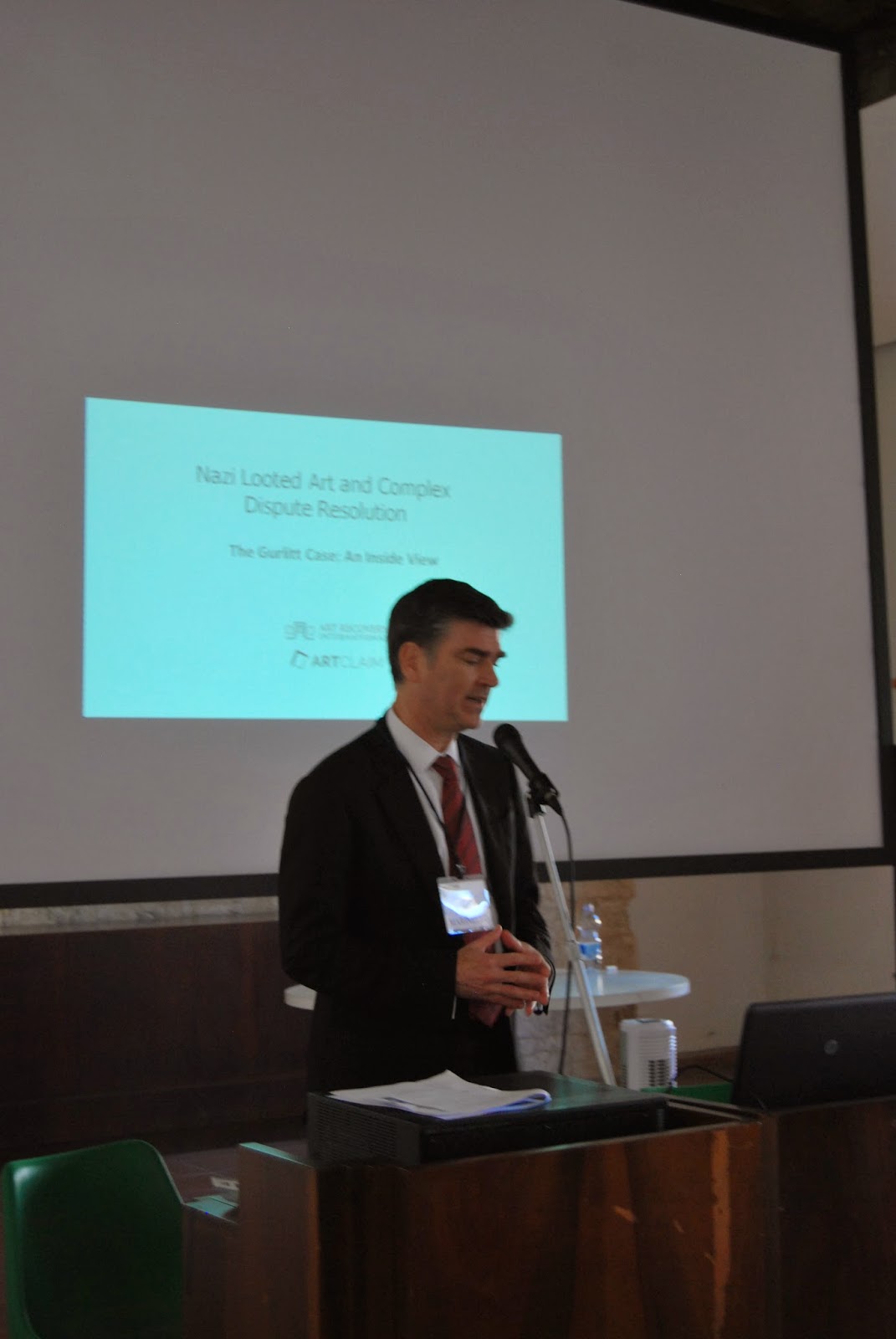Thursday, July 03, 2014 -  2014 ARCA Sixth Annual Conference,Art Recovery International,Christopher Marinello,Gurlitt art collection,Matisse,Paul Rosenberg
2014 ARCA Sixth Annual Conference,Art Recovery International,Christopher Marinello,Gurlitt art collection,Matisse,Paul Rosenberg
 No comments
No comments
 2014 ARCA Sixth Annual Conference,Art Recovery International,Christopher Marinello,Gurlitt art collection,Matisse,Paul Rosenberg
2014 ARCA Sixth Annual Conference,Art Recovery International,Christopher Marinello,Gurlitt art collection,Matisse,Paul Rosenberg
 No comments
No comments
"The Gurlitt Case -- An Inside View From Christopher A. Marinello, Lawyer and Representative for the Heirs of Paul Rosenberg" presented at ARCA's Sixth Annual Interdisciplinary Art Crime Conference on June 28
.jpg) |
| Matisse, Femme Assise, Paul Rosenberg Archive |
Amelia, Umbria -- Following Duncan Chappell and Saskia Hufnagel’s analysis of the legal issues involved in the controversy over the art collection previously in possession of the now deceased Cornelius Gurlitt, Christopher A. Marinello, a lawyer and the founder of Art Recovery International, spoke on representing the heirs of Paul Rosenberg in their efforts to recover Henri Matisse’s painting Femme Assise found in Mr. Gurlitt's Munich apartment and looted from Paul Rosenberg by the Nazis in 1940 (see information regarding the Task Force's decision here).
Chris Marinello discussed the company’s new Art Claim Database, which he said aims to become the world’s largest and technologically advanced private database of stolen, looted, and otherwise tainted works of art. Based in London, Marinello said he has recovered and resolved title disputes involving over $350 million worth of artwork and offers free services to law enforcement, governments, and non-profit museums.
The heirs of Paul Rosenberg are still searching for 59 of the 400 paintings that were looted from the Paul Rosenberg Gallery in Paris which included works by Picasso, Matisse, and Braque, all close friends of the Jewish dealer. [Information on The Paul Rosenberg Archives housed at The Museum of Modern Art in New York is available here. The family business moved from selling antiques in the late 19th century to Impressionist and Post-Impressionist works.]
 |
| Christopher Marinello in Amelia |
Marinello criticized German authorities in their handling of this most recent discovery of long lost Nazi looted artwork but praised the efforts of the individual researchers who make up the “Task Force” faced with the herculean task of reviewing the provenance of the Gurlitt pictures.
Despite the fact that German law offered little or no protection to his clients and other heirs of Holocaust claimants, Marinello explained that some of his strategy in the Gurlitt matter included direct contact with Cornelius Gurlitt himself. Marinello said that throughout the discussions that took place with Mr. Gurlitt’s lawyers, he refused to accept anything other that unconditional restitution of the looted Matisse. Marinello said that an unconditional release and restitution agreement negotiated with Mr. Gurlitt’s lawyers in late March was put on hold after an unusual series of events interfered with the execution of that agreement. The upheaval in Gurlitt’s legal team and the Task Force’s consideration of a competing, but ultimately fraudulent claim to the Rosenberg Matisse delayed matters long enough to see the death of the Cornelius Gurlitt, Marinello explained.
In an apparent snub of Bavarian officials, Marinello said, Gurlitt left his pictures to the Kunstmuseum in Bern, Switzerland which has publicly pledged to return all looted works of art to their rightful owners.
In an apparent snub of Bavarian officials, Marinello said, Gurlitt left his pictures to the Kunstmuseum in Bern, Switzerland which has publicly pledged to return all looted works of art to their rightful owners.
Without revealing his current strategy, Marinello explained that he has been in contact with the museum in Bern and the German Probate Court and is confident that the Matisse will be restituted to the Rosenberg heirs in the next few months.
A three-time returning speaker at ARCA, Chris thanked conference organizers for developing a program that allows for spirited intellectual debate of important cultural property issues in a relaxed and friendly environment.

